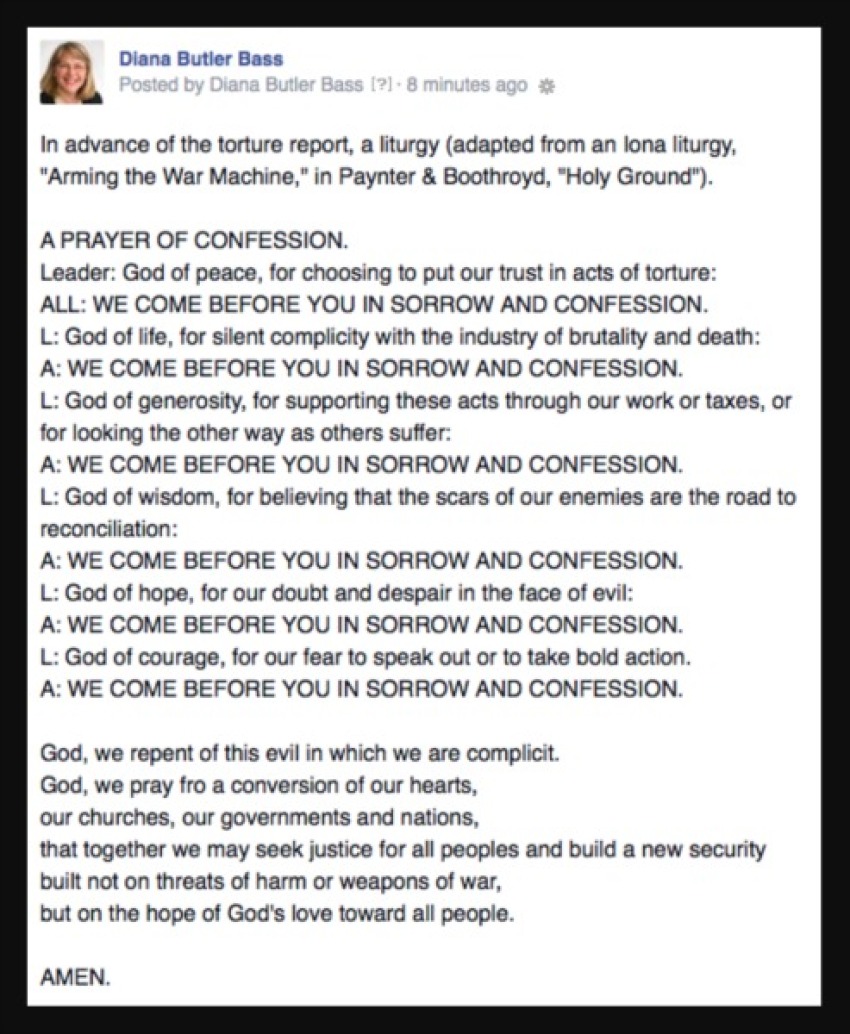Opposition to Torture Often 'Misplaced' By Christian Activists

Numerous religious voices have been amplifying the findings from the U.S. Senate Intelligence Committee Democrats' report on enhanced interrogation techniques that are denounced as torture.
The report and religious reaction rehash a debate dating back at least 8 years, when the National Religious Campaign Against Torture began its ongoing denunciation of Bush Administration post 9-11 detention policies of terror suspects. In 2007 an Evangelical Declaration Against Torture, crafted by a group led by liberal Baptist ethicist David Gushee, was endorsed by the National Association of Evangelicals.
Here's a critique from Evangelical ethicist Keith Pavlischek of that declaration. And here's Gushee's responsive defense.
About 39 detainees the U.S. captured after 9-11 were reportedly subjected to enhanced interrogation during 2002-2007, three of whom were water boarded, and one of whom apparently died from suspected hypothermia while detained in Afghanistan. President Obama signed an executive order against enhanced interrogation in 2009.
Today, the debate is primarily historical, with critics apparently believing that ongoing, repeated exposure and denunciation are purgative. Critics of this process argue that it over simplifies the moral issues, ignores the exigencies of the immediate threat after 9-11, and at this point only aids America's terrorist enemies with additional propaganda tools, possibly endangering American lives.
Several former CIA directors reacted to the Senate Democrats' report with a Wall Street Journal op-ed defending enhanced interrogation. Other critiques of the report are from Tom Rogan and Stephen Hayes.
Liberal Episcopalian Diana Butler Bass tweeted this liturgy of atonement for enhanced interrogation. The closing lines speak of a "new security built not on threats of harm or weapons of war, but on the hope of God's love toward all people."

We can be confident of course in God's love for all people. But until God sets forth the new heavens and new earth, temporal security will indeed require threats of harm or weapons of war.
Enhanced interrogation was a desperate attempt, with bipartisan support, to prevent another 9-11. Its defenders insist, against the Senate Democrats' report, that it was successful. Even if immoral in full or in part, as some religious voices declare, the 39 captives subjected to it, one of whom reportedly died, should be seen in the larger context of 3000 killed on 9-11, tens of thousands subsequently killed in Afghanistan and Iraq, and several million killed in wars globally across the last 12 years, most in unreported wars, such as in Sudan and Congo.
Unvarnished torture affects thousands today around the world, inflicted by dozens of tyrannical regimes, not on murderous terrorists and their accomplices, but often on innocent persons guilty primarily of dissent from the regime.
The sustained zeal devoted by some religious groups against enhanced interrogation of 7-12 years ago seems at best misplaced energy better expended on today's global and more admirable victims of unalloyed torture.



























